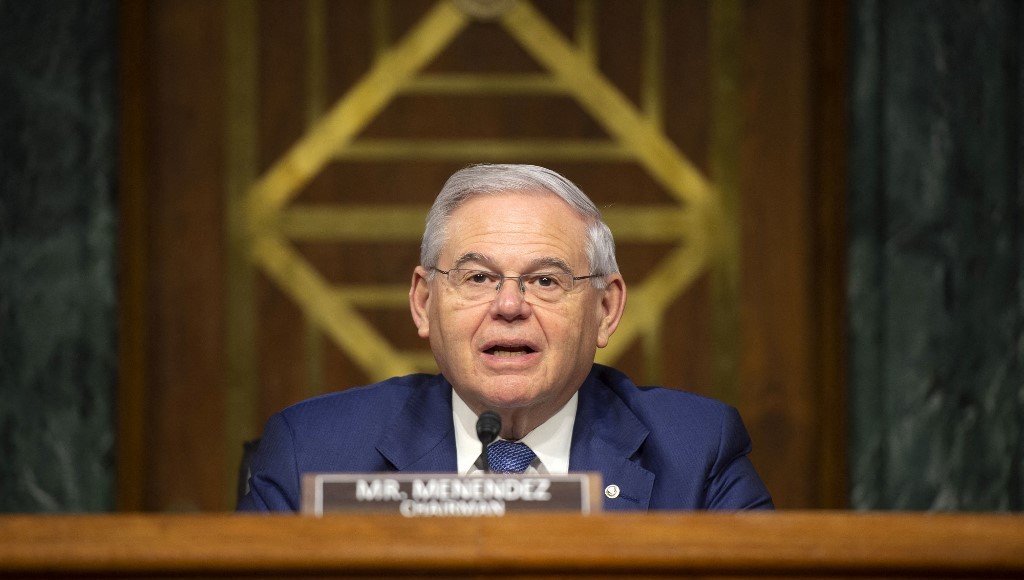US Senate Foreign Relations Committee (SFRC) Chairman and Democratic Senator Bob Menendez has said he will not abandon his opposition to the sale of F-16 jets to Turkey and that the final text of the 2023 National Defense Authorization Act (NDAA) was not a victory for Turkey with regard to its chances of obtaining the jets.
Amendments introduced in the US House of Representatives making the sale of F-16 fighter jets to Turkey contingent on a series of conditions were removed in the final defense spending bill, Turkey’s state-run Anadolu news agency reported earlier Wednesday, citing a draft text they obtained.
A conference committee made up of House and Senate members finalized the NDAA bill, which includes the 2023 defense budget, Anadolu said.
“Contrary to some claims, the NDAA is not a win for Turkey. This is just one of many tools we have at our disposal in the Senate to deal with arms sales,” Menendez tweeted, adding that “I’ll say it again. As SFRC Chairman, I will NOT approve F-16s for Turkey until Erdogan halts his abuses across the region.”
Contrary to some claims, the #NDAA is not a win for #Turkey. This is just one of many tools we have at our disposal in the Senate to deal with arms sales.
I'll say it again.
As #SFRC Chairman, I will NOT approve F-16s for Turkey until Erdogan halts his abuses across the region. https://t.co/TmYCwsCap9— Senate Foreign Relations Committee (@SFRCdems) December 7, 2022
According to Anadolu, the final version of the draft text, which will be voted on by both chambers of Congress, does not contain the amendments introduced by Menendez and Chris van Hollen, another Democratic senator, making potential F-16 sales to Turkey dependent on two conditions.
The first amendment required the US president to certify that “such a transfer is in the national interest of the United States” and requires “concrete steps taken to ensure that such F-16s are not used by Turkey for repeated unauthorized territorial overflights of Greece.”
The second amendment created additional conditions for Turkey to purchase or modernize its existing F-16 fighter jets, also involving Ankara’s efforts to undermine the Syrian Democratic Forces and requiring its ratification of Sweden and Finland’s accession to NATO.
Many US lawmakers soured on Ankara after its 2019 acquisition of a Russian-made missile defense system, triggering US sanctions as well as Turkey’s removal from the F-35 fighter jet program.
Turkish President Recep Tayyip Erdoğan’s increasingly authoritarian grip on power and eroding freedoms for journalists and rights defenders have also prompted many in Washington to argue against a weapons sale to Turkey.
Turkey turned its focus to buying F-16s to upgrade its aging fleet of American warplanes after it was removed from the program to help manufacture and buy the next-generation F-35 fighter jet. That move was made in response to Turkey’s purchase of a Russian S-400 missile-defense system that Erdoğan said was urgently needed for the country’s defense.
Erdoğan said in September that he had received “positive” feedback from two US senators he met with in New York regarding their possible support for the F-16 purchase. Erdoğan’s spokesman recently stated that the purchase could be completed as early as next year.

